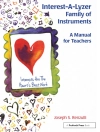For Irish Americans as well as for Chicago’s other ethnic groups, the local parish once formed the nucleus of daily life. Focusing on the parish of St. Sabina’s in the southwest Chicago neighborhood of Auburn-Gresham, Eileen Mc Mahon takes a penetrating look at the response of Catholic ethnics to life in twentieth-century America. She reveals the role the parish church played in achieving a cohesive and vital ethnic neighborhood and shows how ethno-religious distinctions gave way to racial differences as a central point of identity and conflict.
For most of this century the parish served as an important mechanism for helping Irish Catholics cope with a dominant Protestant-American culture. Anti-Catholicism in the society at large contributed to dependency on parishes and to a desire for separateness from the American mainstream. As much as Catholics may have wanted to insulate themselves in their parish communities, however, Chicago demographics and the fluid nature of the larger society made this ultimately impossible. Despite efforts at integration attempted by St. Sabina’s liberal clergy, white parishioners viewed black migration into their neighborhood as a threat to their way of life and resisted it even as they relocated to the suburbs.
The transition from white to black neighborhoods and parishes is a major theme of twentieth-century urban history. The experience of St. Sabina’s, which changed from a predominantly Irish parish to a vibrant African-American Catholic community, provides insights into this social trend and suggests how the interplay between faith and ethnicity contributes to a resistance to change.
Cuprins
The Making of the Irish Parish Community: A Historical Background
St. Sabina: A Parish Founded on a Prairie
I’m from Sabina’s, 1916 to 1941
Ticket to Heaven: Community and Religion at St. Sabina’s, 1940 to 1960
The Saints Come Marching In: Irish and Catholic Identity
The Troubles: The Parish Community and the OSC
Where Two or Three Are Gathered: St. Sabina’s in the 1960s
Conclusion
Despre autor
Eileen M. Mc Mahon is associate professor of history at Lewis University. She currently serves as the editor of the Journal of the Illinois Historical Society and is the author of Chicago’s Civil War: A History in Documents.












